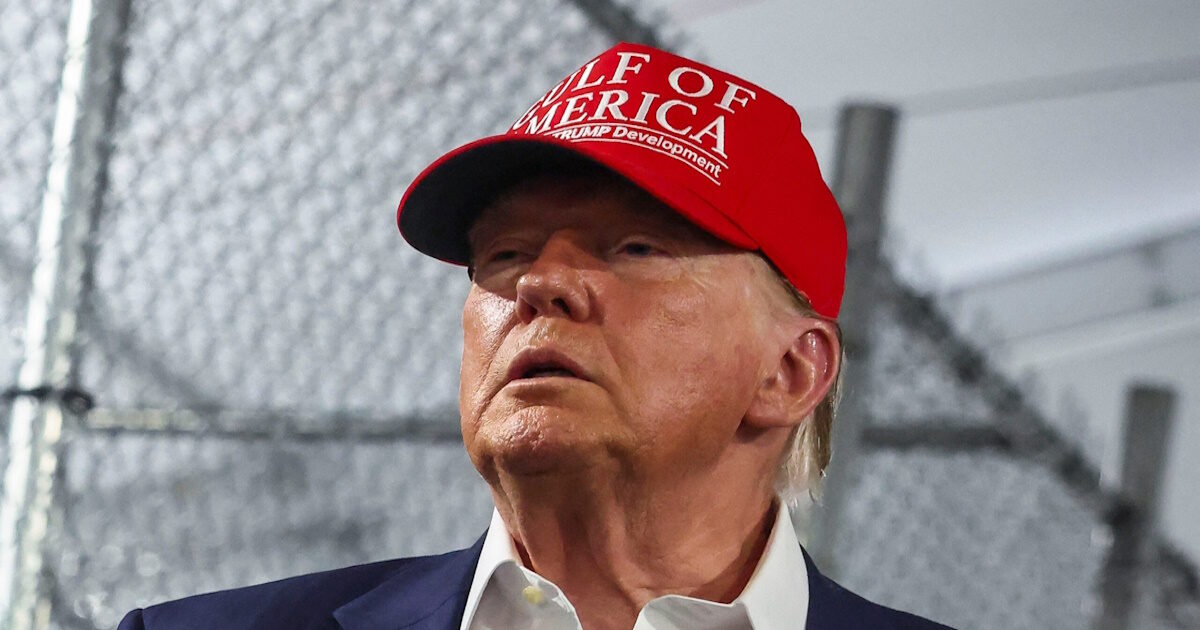Critical times in front of her European Union (just three days just before the expiry of the three -month deadline Trump) in order to finalize a framework agreement with the US and to prevent the US President Donald Trump’s trade war.
Trump threatened to impose higher duties again on the night of Friday, July 4, 2025, however, as high -ranking officials and diplomats of the Commission at Handelsblatt report, the US has almost made almost no concession to the EU in the negotiations so far.
On Monday, July 7, 2025, Trump intends to send “probably ten or twelve letters” to various commercial partners announcing new tariff regimes. The letters have already been signed and the new tariff rates range from “60% or 70% to 10% or 20%,” Trump told Air Force One.
The EU Committee is pushing for an agreement on the freezing of US duties at 10% and the continuation of discussions on controversial issues beyond summer. President Ursula von der Laien said on Thursday that her goal is a “deal in principle”.
The risky strategy of von der Laen
During the weekend, there was increasing concern between diplomats and politicians from skeptical Member States that von der Laien agreed to an agreement that was very unequal in fear of escalation. “What is evident is a bad deal for Europe,” one of them warned in Handelsblatt. “Is it really worth it so much to make Americans so much to prevent Trump from double the duties in cars at 50%?”
Critics point out that the Commission President is taking a high political risk: “This is the Ursula von der Leyen agreement. If he makes too many concessions, he will not be able to distance himself from it. This could quickly mean its political decline, “said an EU diplomat.
At a meeting of the 27 permanent representatives of the EU governments in Brussels on Friday, Björn Seibert, head of the Von Der Leyen office, informed them of the negotiations. The ambassadors left the briefing frustrated: the Americans had made only a few concessions, and Trump also threatened to impose new tariffs on European agricultural products.
Trump deliberately divides the EU
The US strategy of EU internal division already has effect. Trump tries to weaken the European Union’s negotiating position through targeted last -minute threats and bilateral bids in Member States that are willing to compromise -especially in Germany and Italy. Shortly before the expiration of Trump’s deadline, the crushes are now visible.
Given the great dependence of their export industry from the US, Germany and Italy are pushing for a quick deal, even at the cost of extensive concessions. Together with German automakers, the Chancellor has traded directly to the US a raid system per manufacturer that would depend on car exports from increased US production – a blatant and for the EU in fact “unacceptable” promotion of external assignment to the US, they warn high -ranking officials.
Trump recently said that his total duties should not be paid by August 1st. This suggests that Washington at least wants to keep the margins open with major partners such as the EU, Japan and South Korea. At the same time, however, Trump made it clear that he would not retreat to Europe.
The US government has issued a new threat only on Thursday, July 3, 2025, as confirmed by diplomats in Handelsblatt. Trump wants to impose a 17% duty on Europe’s food and agricultural products – including Belgian chocolate, Kerrygold butter from Ireland and olive oil from Italy, Spain and France. Products that are very popular in the US. The Financial Times first referred to the new threat, which Maroš Šefčovič received in Washington in a meeting with US Finance Minister Scott Bessent, commercial representative James Greer and Commerce Minister Howard Lutnick.
Trump wants to relocate the car industry to America. However, only minor concessions were made by Washington. As Handelsblatt first said, European exporters will have to accept a minimum duty of ten percent despite the agreement. As for the automotive industry, the US wants to maintain a 27.5% car duty in principle and grant lower duties only for a limited number of vehicles per year, as Handelsblatt learned from negotiating circles.
Only for the air transport industry, “zero to zero” – the reduction of bilateral duties to zero percent of the EU – it may have been possible to achieve with the Americans.
An agreement with Trump was doubtful from the outset. This is due to the fact that the US president requires more than simple tariff concessions: it requires the termination of the EU food regulations, in his opinion, exceptions for US technology companies from the new EU digital laws and the external assignment of the European automotive industry. It also calls on Europe to review VAT systems as it believes they are punished by US imports.
‘More poor than China’
This public demonstration of cruelty is not only for reasons of regular negotiation, but also for strategic reasons. For Trump, the EU is not a neutral commercial partner, but a systematic opponent.
According to Trump, the European Union was founded “to p @@@@ the United States”. In the past, he had called it “badly than China”.
Even if an agreement is reached, tensions remain unavoidable because Trump continues to threaten new duties. Analyst Carsten Nickel of Teneo Consulting Company told CNBC that even an initial deal could be overturned at any time as soon as the US changed their position.
A committee spokesman said the Commission continued negotiations with the US during the weekend. The aim is still to reach an agreement, but preparations are also made in the case of negotiations. Representatives of the EU countries want to meet again on Monday to discuss the situation of the negotiations.
